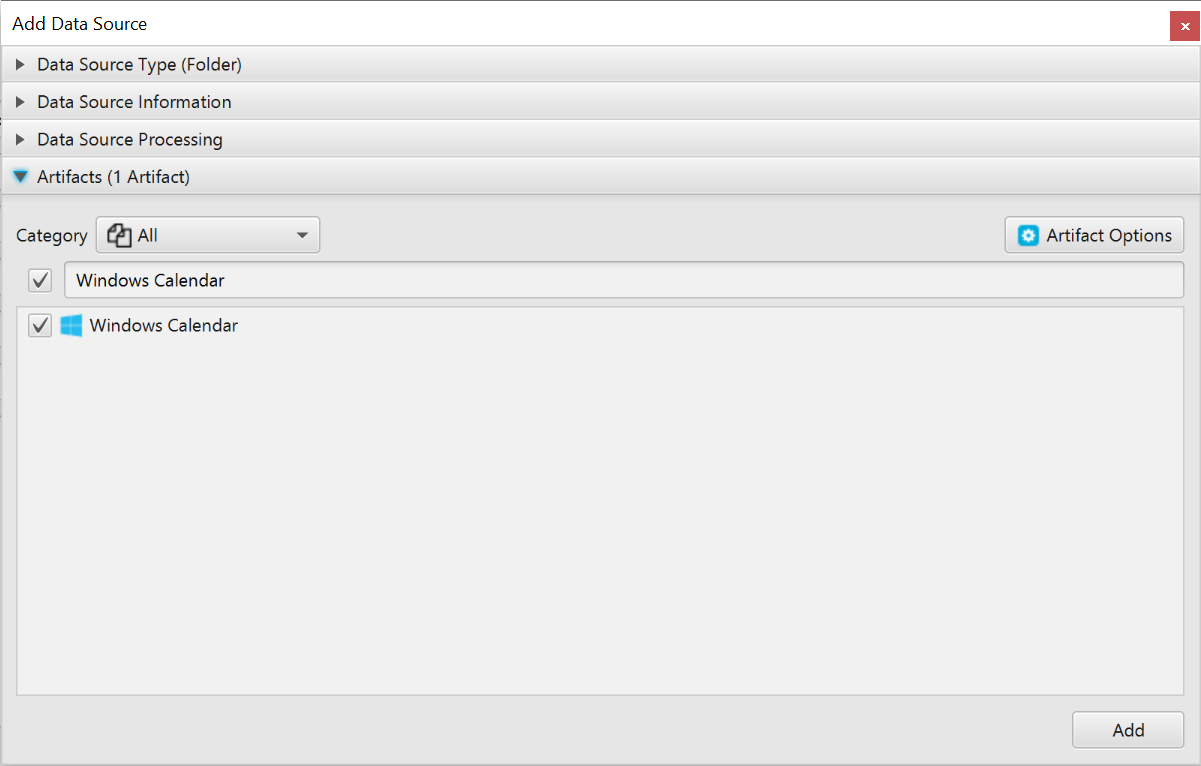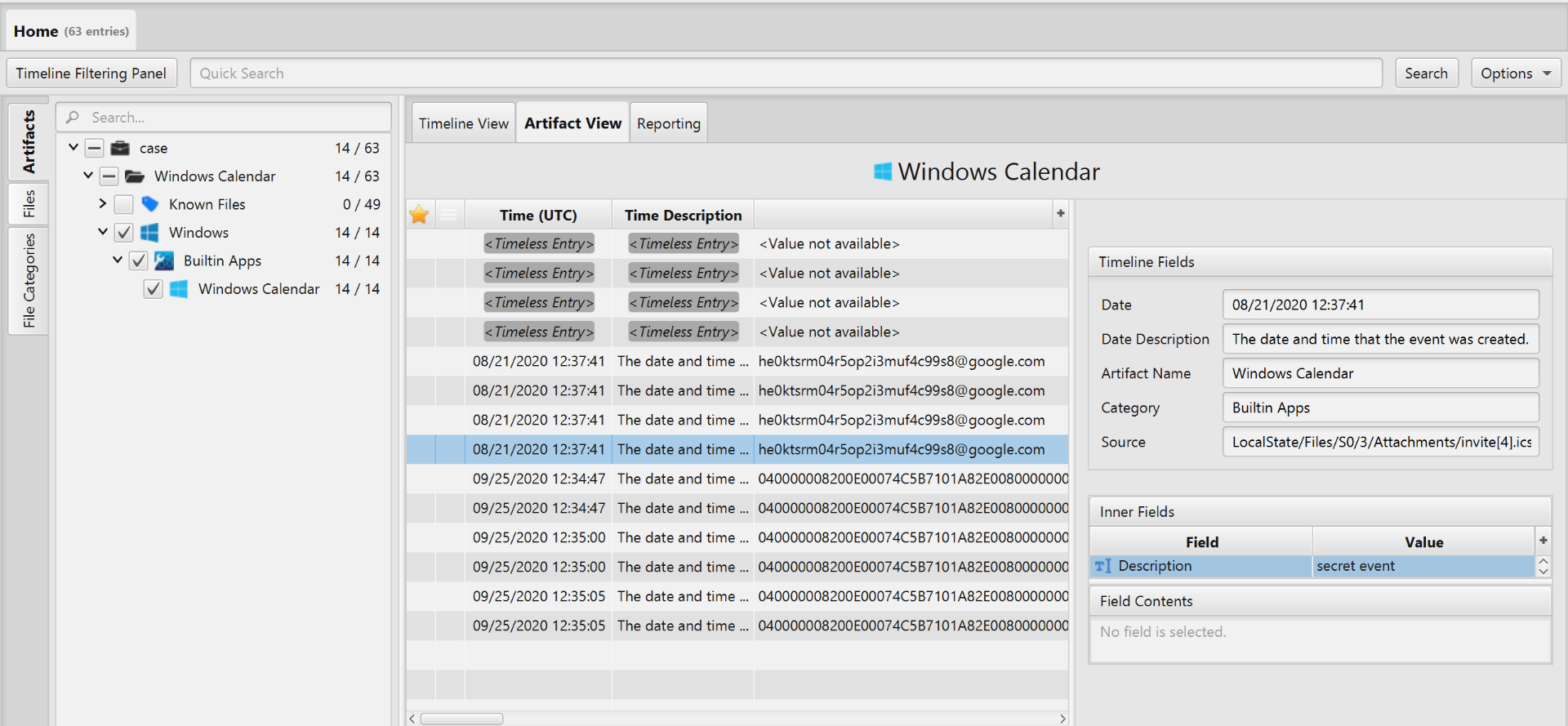Investigating Windows Calendar
08/10/2021 Friday
Calendar is a built-in Windows application developed by Microsoft. Calendar helps users in managing their schedules, meetings, reminders, appointments, and different types of events. It also enables the synchronization of calendars using Microsoft Exchange Server, Outlook, Apple's iCloud calendar, and Google Calendar. It supports the popular iCalendar format.
Digital Forensics Value of Windows Calendars
Calendars' importance relies on their function, as they allow us to organize our daily life commitments thus creating a timeline of events that could aid forensics investigators in gaining a visual insight into someone’s life’s activities, habits, plans, and availability.
Location of Windows Calendars Artifact
Windows Calendar artifacts are stored in the following location:
C:\Users\%User%\AppData\Local\Packages\microsoft.windowscommunicationsapps_8wekyb3d8bbwe\LocalState\Files\S0\%FileName%\Attachments
Structure of Windows Calendar Artifact
Windows Calendar store its data in ICS (Internet Calendar Scheduling) file, also called Calendar Events (ICS), or iCalendar File. ICS files are saved in a universal calendar format used by several email and calendar programs including Outlook, Google Calendar, and Apple Calendar. Calendar files are saved in a plain text format that contains information such as the title, summary, start time, and end time for the calendar event. The Calendar format also supports event updates and cancellations.
An iCalendar file structure consists of multiple sections starting with "BEGIN:" and ending with "END:" The global section that is holding all the other sections is called "VCALENDAR" sections. Then, the other sections include "VEVENT" for events, "VTODO" for to-do items, "VJOURNAL" for journal entries, and "VTIMEZONE" for time zone information. Moreover, multiple sections of the same type can be repeated. For example, multiple "VEVENT" sections can occur in an iCalendar file to describe multiple events.
Analyzing Windows Calendar Artifact with ArtiFast Windows
This section will discuss how to use ArtiFast to extract Windows Calendar artifacts from Windows machines
and what kind of digital forensics insight we can gain from the platform.
After you have created your case and added evidence for the investigation, at the Artifacts Selection phase,
you can select Windows Calendar Artifact:


Once ArtiFast parser plugins complete processing artifacts for analysis, it can be reviewed via “Artifact View” or “Timeline View”, with indexing, filtering, and searching capabilities. Below is a detailed description of Windows Calendar artifact in ArtiFast Windows.
Windows Calendar Events (ICS) Artifact
This artifact contains information about
events and appointments that are recovered from calendar .ics files such as:
- ID - A unique ID for the calendar entry.
- Type - The type of event.
- Created Date - The date and time that the event was created.
- Start Date - The date and time that the event starts.
- End Date - The date and time that the event ends.
- Summary - A short summary of the event, the title.
- Description - Provides a more complete description of the event.
- Last Modified Date Time - The date and time in which the event was last modified.
- Location Name - The name of the venue in which the event is held.
- Organizer - The organizer of the calendar event.
- Status - It indicates the status or confirmation for the calendar component (Tentative, Confirmed, or Cancelled).
- URL - The URL that is associated with the event.
- Recurrence - Indicates whether the event is recurring.
- Attendees - A list of attendees for the event.
- Categories - The tags that are associated with the event.
- Comment - A comment the organizer writes for to the user.
- Resources - It defines a list of the equipment or resources anticipated for an activity specified by a calendar entity.
- Timezone - It represents the Time zone in which the event is held.
